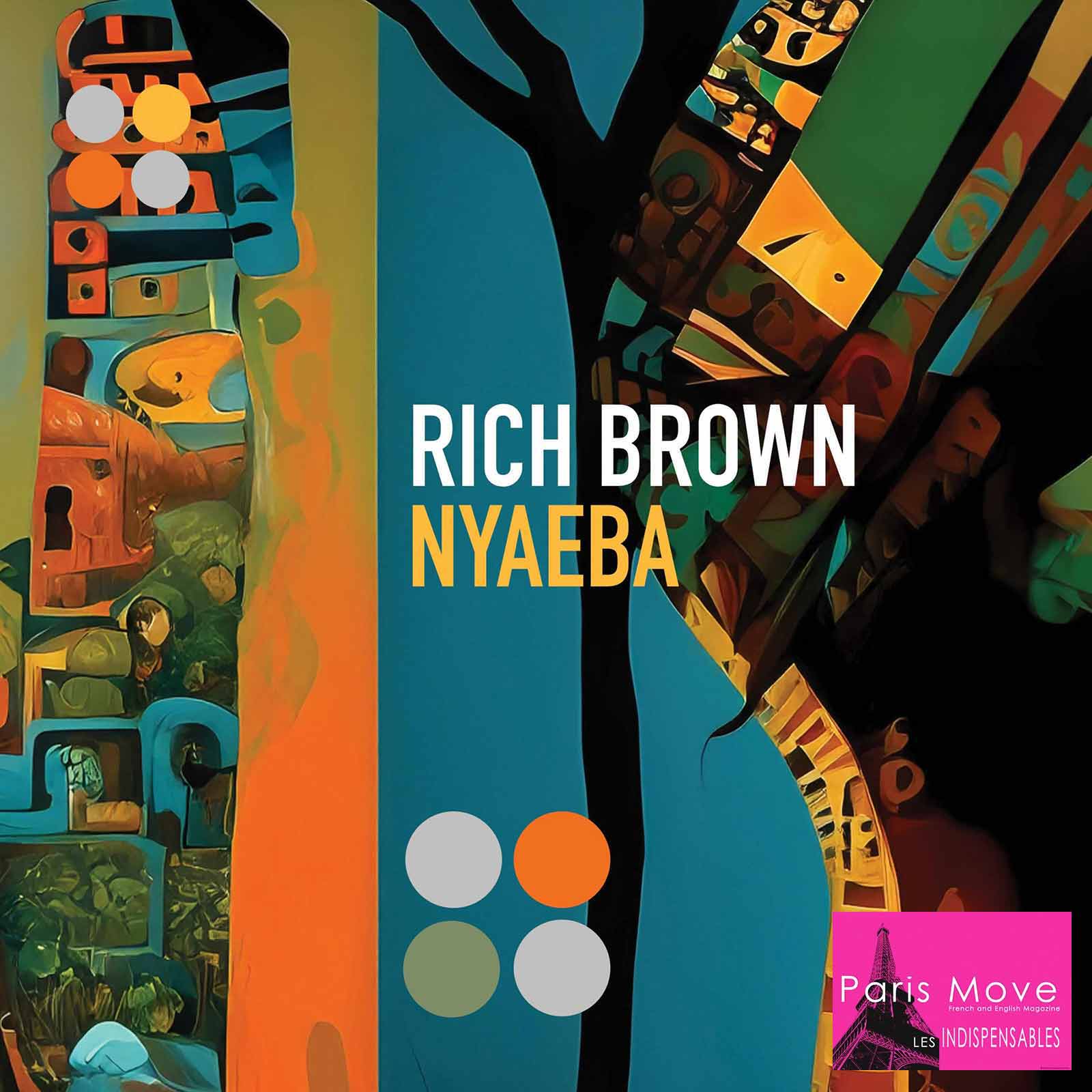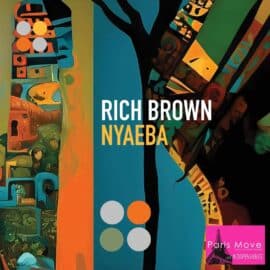| Jazz |

We admittedly received this album later than expected, but in the end, the delay feels almost appropriate. Some records arrive precisely when they are meant to, quietly, without fanfare, ready to reveal themselves to listeners who know how to pay attention. And if you have friends who are passionate about the bass, or who admire musicians capable of reshaping the expressive possibilities of their instrument, this album may well be the most thoughtful gift they could receive.
From the outset, it is clear that Rich Brown has no interest in repeating the familiar or the convenient. He moves between a six-string electric bass and a fretless semi-acoustic four-string with the ease of someone who has spent a lifetime turning the instrument inside out. Brown is not simply a bassist; he is a cartographer of sound, mapping new territories while rewriting the boundaries of what a bass-centered record can be.
NYAEBA, his latest creation, is at once conceptual and deeply personal. Conceived as the musical chronicle of an imaginary griot who travels across the world and returns home to recount his odyssey, the album is written and performed entirely on bass, a daring choice that immediately sets it apart. The idea could easily have collapsed under its own ambition, yet Brown grounds the narrative in melody and emotional coherence. Technique, however prodigious, never overshadows intention. The story always comes first.
The structure of the album is itself a kind of journey. It begins with a distinctly African-inflected introduction, rich in nuance and ancient echoes, before lifting off toward other musical geographies. The transitions are seamless, almost cinematic. One moment, the listener is immersed in earthy rhythmic traditions; the next, swept into luminous harmonic spaces where the beauty of the sound, its grain, its warmth, its melodic restraint, takes precedence. Brown chose his collaborators with obvious discernment: each guest musician feels essential, as though the album’s narrative arc would lose cohesion without them.
There is something delightfully old-fashioned about the project as well. At a time when loopers and sequencers have become nearly invisible fixtures of studio production, Brown deliberately avoided them. Every track is constructed from multiple studio takes, recorded by hand, layered with meticulous care. The effect is startling: an album that is both sonically expansive and intimate, polished yet breathing, modern yet anchored in the traditions of storytelling performance.
But what surprises most is the record’s emotional variety. It is impossible not to feel the presence of the Zawinul Syndicate, its globe-spanning sensibility, its openness to hybrid soundscapes. And yet Brown charts a more direct, even more personal path. Compared to Richard Bona, another virtuoso who bends musical borders with ease, Brown conveys a kind of purity: a stripped-down, unvarnished sincerity that feels less like performance and more like revelation. His creative voice is unmistakably his own.
The challenge with any bass-centered album is maintaining the listener’s attention without overwhelming them. Here, Brown triumphs. After a few tracks, one stops hearing “a bass album” and begins hearing a world: shifting environments, distant textures, the hum of imagined landscapes. The instrument disappears into its own storytelling function. This achievement draws on decades of collaboration with some of the most distinctive artists of our time, Rudresh Mahanthappa (whose group Samdhi Brown has worked with), Carol Welsman, Jane Siberry, Glenn Lewis, Dapp Theory, Steve Coleman & 5 Elements, James “Blood” Ulmer, Vernon Reid, Andy Narell, Bruce Cockburn, Marc Jordan, Kim Mitchell, David Clayton-Thomas, and many more. Their influences do not dominate, but they resonate quietly beneath the surface, like earlier chapters of the same tale.
The album’s final track, a tribute to Alice Coltrane titled “Turiyasangitananda,” carries a spiritual resonance that feels both reverent and deeply personal. The title, meaning “the Supreme Song of the Bliss of the Transcendental Lord,” signals the work’s meditative foundation. Brown has described the piece as a gesture of gratitude, for the inner peace that meditation has brought him, and for the clarity it lends to his music. Listening to it, one senses the weight of that gratitude: a luminous calm, a kind of soft radiance that lingers even after the track ends.
Like all meaningful journeys, this one ends too soon. The landscapes pass quickly; you want to hold onto them, but the narrative keeps moving, propelled by the pulse of the bass. And when the album finally releases you, there is an unmistakable sensation of longing. It is not a simple record, far from it. It demands engagement, patience, a willingness to inhabit its complexity. But that difficulty is precisely what makes it compelling. Rich Brown’s music rewards not just listening, but revisiting. Each return uncovers new details, new textures, new connections, quiet discoveries that were waiting for you all along.
In an era of instant gratification, NYAEBA stands as a reminder that some stories unfold slowly, deliberately, and with purpose. And that, sometimes, the most surprising journeys begin with a single instrument in the hands of someone who refuses to accept its limits.
Thierry De Clemensat
Member at Jazz Journalists Association
USA correspondent for Paris-Move and ABS magazine
Editor in chief – Bayou Blue Radio, Bayou Blue News
PARIS-MOVE, November 19th 2025
Follow PARIS-MOVE on X
::::::::::::::::::::::::
Musician : Rich Brown, bass
Recorded at The Escape Corner – Toronto, Ontario, Canada
Engineered by Elmer Ferrer
Mixed by Elmer Ferrer
Mastered by Harry Hess – HBOMB Mastering
Producer – Rich Brown & Elmer Ferrer
Executive Producer – Michael Janisch
Photography by Dimitri Lewis
Album Artwork and Graphic Design by Brian Hanlon, OGMedia Group

